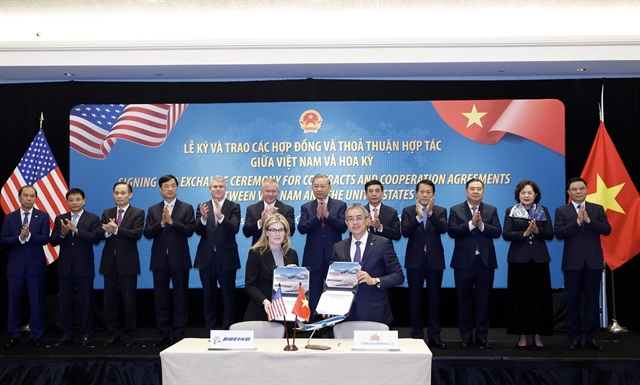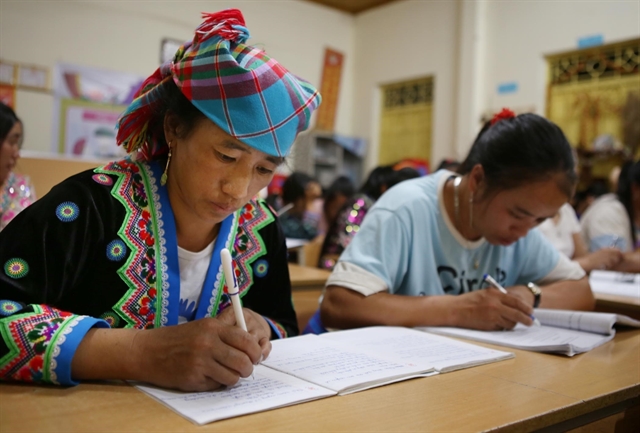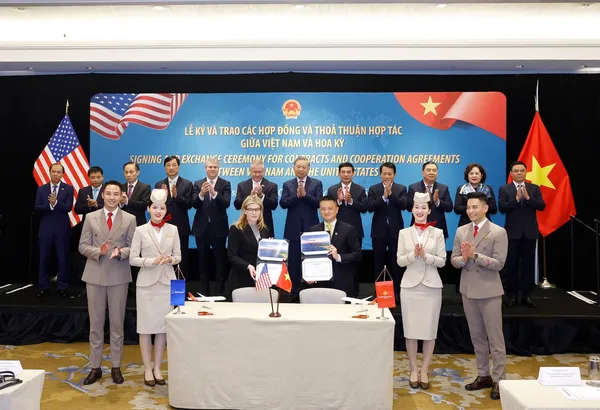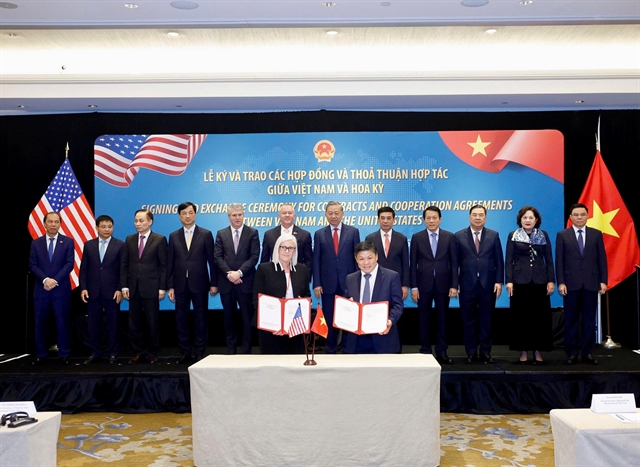 Society
Society

.jpg)
|
| Dao Thanh Phán ethnic minority people participate in a literacy class in Bình Liêu District in northern Quảng Ninh Province. VNA/VNS Photo |
HÀ NỘI — Việt Nam has achieved notable successes in eradicating illiteracy, and efforts continue to advance this mission, the Ministry of Education and Training (MoET) reported on International Literacy Day, which falls on September 8.
In Việt Nam, the literacy rates at Level 1 (completing Phase 1 of the illiteracy eradication programme and engaging in continuing education after acquiring literacy skills) and Level 2 (completing Phase 2 of the illiteracy eradication programme and engaging in continuing education after acquiring the skills) among people aged 15 - 60 stand at 98.85 per cent and 97.29 per cent, respectively.
All 63 provincial-level localities nationwide have achieved Level 1 in illiteracy elimination, and 48 of them, accounting for 76.19 per cent, have reached Level 2. Four provinces achieved Level 2 in the 2022 - 2023 academic year: Phú Yên, Kiên Giang, Sóc Trăng, and Quảng Nam.
Meanwhile, over 1 million people aged 15 - 60 remain illiterate at Level 1, and more than 2 million are illiterate at Level 2, predominantly ethnic minority individuals and women.
Some localities still record high illiteracy rates, including Ninh Thuận (10.52 per cent), An Giang (7.3 per cent), Lai Châu (6.11 per cent), HCM City (6.45 per cent), Hà Giang (4.58 per cent), Gia Lai (4.49 per cent), Bắc Kạn (4.45 per cent), and Bình Phước (3.66 per cent).
During the last academic year, more than 32,000 people enrolled in illiteracy eradication classes, an increase of over 12,000 from the 2021 - 2022 school year. This has helped the country maintain its achievements in this area, according to provincial-level departments of education and training.
Sồng Thị Chư, who lives in Nà Nghịu Commune, Sông Mã District in northern Sơn La Province, was over 30 years old and could neither read nor write. She was encouraged to join a class alongside her daughter, attending five sessions a week.
Chư mentioned that learning to read and perform calculations had made her daily life more convenient.
Another resident of Nà Nghịu Commune, Lò Thị Thoa, said that since learning to read, she had become more independent in her daily tasks and no longer needed others to read and write on her behalf, as was the case previously.
Nguyễn Công Viên, head of the Education and Training Department in Sông Mã District, highlighted that adult literacy initiatives faced challenges as most of the participants were of working age. Consequently, the department had partnered with the women's union to organise classes with adaptable timings, ensuring full participation from learners and optimising the effectiveness of these sessions.

|
| Ethnic minority women practise writing at a literacy class in Pho Lao Chải Village, Tả Lèng Commune, Tam Đường District in the northern mountainous Lai Châu Province. VNA/VNS Photo Quý Trung |
The MoET reported that, in order to sustain the achievements and assist more localities in reaching Level 2 of illiteracy eradication, during the previous school year, authorities from various provinces and cities directed community learning centres and primary schools to motivate those unable to read or write to join illiteracy eradication classes. This includes Hà Giang (5,897 persons), Lai Châu (5,176), Lào Cai (2,325), Yên Bái (2,088), and Sơn La (2,303).
Many education departments had successfully engaged social forces in this mission by collaborating with departments of public security and departments of labour, invalids and social affairs to organise illiteracy eradication classes and provide vocational training for prisoners. They had also worked with border guard commands to intensify efforts to eradicate illiteracy and advance primary education universalisation, as well as coordinating with education promotion associations and women’s unions to advocate for the development of a learning society.
Furthermore, several education departments had effectively executed public communication campaigns about illiteracy eradication, especially in ethnic minority regions.
As a consequence, the achievements had been sustainably maintained and further progress had been observed, as highlighted by the MoET.
For the 2023 - 2024 school year, a primary objective set by the MoET for continuing education agencies was to further the elimination of illiteracy.
To enhance people's educational level as a means to aid poverty reduction, the MoET said that there was a need to increase support and create favourable conditions for vulnerable groups, those beyond the working age, homemakers, and the disabled to engage in lifelong learning. Stories of older individuals in their 60s, 70s or even 80s should be highlighted to promote the value of lifelong learning in society.
For the 2023 - 2030 period, the MoET had initiated a movement that urges the entire nation's collective efforts towards building a learning society and championing lifelong learning. This programme was designed to boost the entire political system's involvement in elevating public awareness about the importance of lifelong learning and a learning society. This, in turn, would contribute to the enhancement of human resources in the context of the Fourth Industrial Revolution and global integration.
In a recent interview with the Vietnam News Agency, UNESCO Chief Representative in Việt Nam, Michael Croft, confirmed that UNESCO would persist in supporting Việt Nam towards achieving Sustainable Development Goal 4, which revolves around lifelong learning and the establishment of a learning society.
He remarked that over the past decade, Việt Nam achieved substantial advancements in literacy eradication and the promotion of lifelong learning. Nevertheless, disparities persisted among various groups.
Significantly, the Vietnamese Government had rolled out initiatives targeting illiterate and semi-literate individuals, such as launching literacy courses for adults in ethnic minority and underprivileged regions. Mechanisms had been instituted for local authorities to routinely oversee and assess community literacy standards, thus motivating thousands of adults to enrol in literacy courses at community learning centres.
However, Croft underscored the importance of distinguishing between basic reading and writing skills and functional literacy, advocating for a more expansive comprehension of these skills.
He noted that UNESCO had aided the Ministry of Education and Training in undertaking a thorough analysis and evaluation of the education sector. This collaboration resulted in the creation of Việt Nam's 10-year Education Strategic Framework, which aligns with the Government's commitments to realising Sustainable Development Goal 4 (SDG4).
Croft further affirmed that UNESCO would persist in supporting Việt Nam in its pursuit of SDG4, framed within the broader objectives of lifelong learning and fostering a learning society. — VNS




